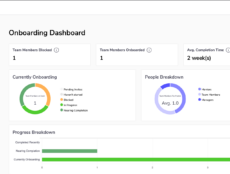
Articles
Choosing a Laptop for University: Why You Need to Consider Application Virtualization
By eLearning Inside
March 05, 2021
Whether you’re heading off to campus or enrolling in online courses, a laptop is a necessity when it comes to basic school supplies. You might think you just need a laptop or tablet for word processing, emailing professors, and downloading study materials, but it can be a bit more complicated than that.
A laptop with bare-minimum specs is going to be usable, but will give you a lot of headaches as universities take advantage of newer technologies. In this article, we’re going to explain why you should consider a more powerful laptop for your university studies.
What is application virtualization?
Schools are dropping textbooks in favor of virtual materials, but they need a way to deliver the learning materials to thousands of students. Thus, universities are relying on desktop and application virtualization, which allow for multiple operating systems to be run from a single machine.
Students come from all walks of life, and so purchasing computer software can be cost-prohibitive for some. A lot of companies offer discount student licences on their software, like Adobe and Microsoft, but others do not. So the universities need a way to make sure that students have access to all the software apps they need.
By setting up virtual desktops and application virtualization, universities can deliver apps to students via web portals or cloud servers. However it requires incredibly powerful workstation host computers with specialized hardware on the university’s end. Imagine a server-type workstation machine that needs to stream 15 – 30 copies of Photoshop to students. Software2.com provides a more detailed rundown of the technical aspects of laptop visualization.
This not only benefits the students, but the universities as well. They are able to manage overhead costs by maximizing software licenses, saving money for both students and the universities on how many applications need to be installed on a single machine.
Why do I need to consider my laptop specs?
There are two different situations here. The first situation is for students in video editing, digital art, and architecture design. Everything we were discussing – application virtualization – means that a lot of the software used in those fields can be run from the university’s workstation, and streamed through VMWare on the students laptop. However, not all universities have fully adopted app virtualization yet, and may not offer all the software required.
So if you buy a cheap laptop, thinking you’ll get by purely on virtualization, you could be pretty disappointed. Cornell University for example recommends that architecture students have a laptop with at least an Intel i7 or i9 processor, 16 – 32 GB of RAM, and a high-end graphics processor, and has high-end recommendations for other fields of study as well.
The second situation is for IT students who will be studying the very topic of application and desktop virtualization solutions. In some cases you will need to set up your laptop as a virtual machine host rather than a client, which means your laptop will need to be powerful enough to act as a VM workstation host.
It’s recommended that laptops for VM workstation purposes have at least an Intel i5, 16GB RAM, and an integrated graphics that will support VMs.
Conclusion
The future of online services and virtualization for universities may mean that in the future, students may only need a simple client box and not worry about the specs as long as it boots up. But for now, application virtualization is not 100% rolled out to all schools, and even still, you would want a laptop that will last you past college and into the early stages of your career.
So investing in a laptop that’s strong and capable now is going to take you quite a bit farther through university and beyond.
Featured Image: Michał Kubalczyk, Unsplash.









No Comments